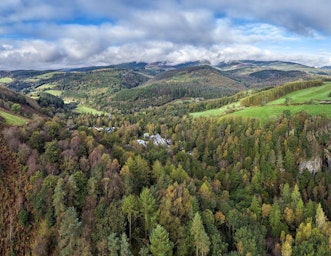
Paul Allen discusses CAT’s new report, and explores how we can meet the complex challenges of climate change with ingenuity and collective determination.
There is no time to spare. In order to deliver the necessary solutions at the scale and speed required, we must fully understand the true nature of the climate problem.
Back in 1973, design theorists Horst Rittel and Melvin Webber developed the term ‘wicked problem’ to help us recognise really complex, challenging problems, particularly those with many feedbacks and no single solution.
The Centre for Alternative Technology acknowledges the climate emergency as a wicked problem, and is launching a major programme of increasing action to help society develop the wicked solutions it so urgently demands – the first phase of which was the release of our latest report Zero Carbon Britain: Rising to the Climate Emergency.
Feedback loops and climate breakdown
The first reason to see climate change as a wicked problem is that it contains many feedbacks that make it non-linear. As the Earth’s climate systems break down, the resulting changes feed back on each other and accelerate change. For example, loss of sea ice means the earth absorbs more of the sun’s heat and warms faster, which causes more ice to melt. There are many others.
In addition, the root causes of climate breakdown are deeply intertwined, spanning many disciplines. All across our living systems, humanity has become locked into high carbon ways of doing things; these exert a powerful influence, shaping the choices that define our lives. Despite the serious climate impacts being known, and despite the existence of cost-effective alternatives, the self-perpetuating inertia of high carbon energy, housing, transport, agriculture and economics creates persistent systemic forces that are highly resistant to change.
The reason we now face an ‘emergency’ is that, despite the climate problem being recognised by science for decades, governments and industries have not acted fast enough. A systemic bias against low carbon technologies and practices is a result of the historical development of the fossil fuel system. We could have – and should have – accelerated this shift to net zero carbon decades ago, avoiding many mistaken investments in fossil fuel assets that we simply cannot burn.

Accelerating emergency
We have, at last, collectively acknowledged that the science tells us we must go to net zero.
The UK government has now signed into law a new target to ‘cut greenhouse gas emissions to net zero by 2050’. This was approved by both the Commons and Lords in June 2019, strengthening the target of the 2008 Climate Change Act. But many believe that for a long-industrialised country like the UK, net zero by 2050 is simply not fast enough.
Speaking to the BBC in September, former Chief Scientific Adviser to the government Professor Sir David King said he’s been scared by the number of extreme events, and called for the UK to advance its climate targets by 10 years. “It’s appropriate to be scared. We predicted temperatures would rise, but we didn’t foresee these sorts of extreme events we’re getting so soon.”
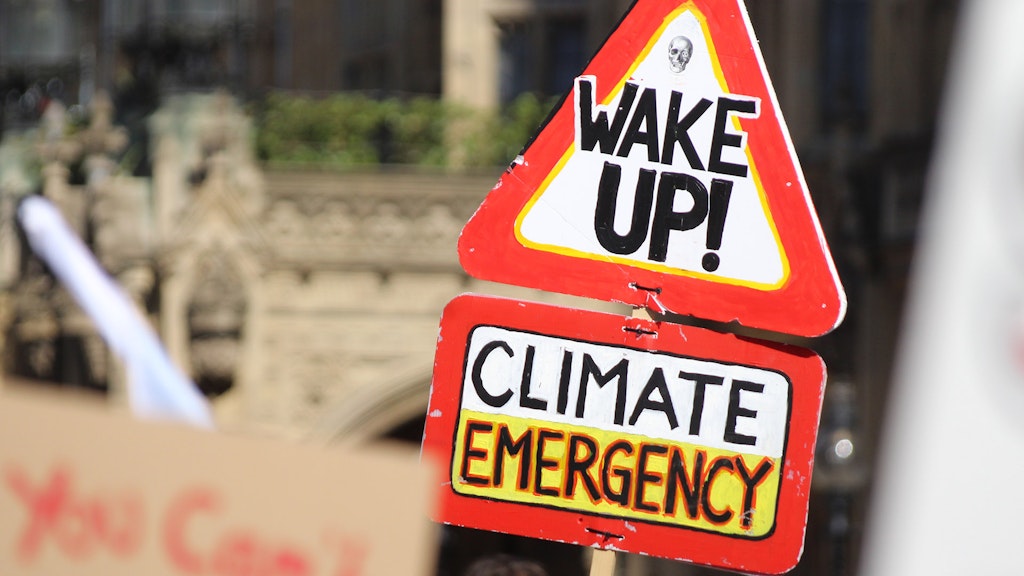
Finding solutions
Thankfully, our human response embodies some ‘wicked solutions’ that can also accelerate change.
For over 12 years, CAT’s Zero Carbon Britain project has been demonstrating with increasing detail how we can connect up the currently available, well-proven technologies to achieve net zero greenhouse gas emissions.
What makes these zero carbon technology solutions wicked is, firstly, the fact they are also non-linear and are now revealing an emerging array of feedbacks, which accelerate both the scale and speed of their deployment.
Investment in research means production costs fall and the scale of deployment increases; this triggers further research and investments in manufacturing and costs fall even faster.
For example, the falls in the cost of solar panels (solar photovoltaic or solar PV) has been faster than experts predicted. Massachusetts Institute of Technology have identified research and development and improvements in cell efficiency as the major factors contributing to a 99 percent reduction in module costs since 1980.
Offshore wind has plummeted below the cost of fossil fuels in just over half a decade. In September, The Guardian revealed that as recently as 2015 UK offshore windfarms received contracts costing around £120/MWh, by 2019 this had fallen to around £40/MWh – less than the price of electricity in the wholesale market.
When the shift to these new technologies is also combined with a ‘just transition’ that offers a more socially just and equitable deal for workers, energy customers or citizens, the process begins to engage more and more people. That is the point of wicked systems thinking – not just looking at one feedback loop, but many.
Grassroots leadership
Fortunately, yet another important wicked solution feedback is now emerging across many countries: new grassroots leadership is calling for climate emergency declarations, backed by action plans for town, city, regional and national levels.
This is now accelerating, as one town sees its neighbour declare, it then also joins the call. We are now witnessing a seismic shift in the collective action to prevent climate breakdown, it is becoming the new normal. And this shift is being documented: UK declarations are listed on the website climateemergency.uk and global declarations can be found on cedamia.org.
Schoolchildren have gone on strike; many deeply committed people across the country have taken to the streets; even the UK parliament has declared a climate emergency. And there is more in the pipeline, so much so that this is now transforming national, political and cultural narratives in a deep way.

Multiplying the benefits
But perhaps the most powerful element of this ‘wicked solution’ is that delivering a zero carbon future also holds the potential to be one of the most exciting opportunities in human history, offering us the chance to simultaneously resolve many other problems.
Acting on climate breakdown with a multi-solving, interdisciplinary mindset can help us also deliver benefits across many sectors. The trick is to identify synergies between investments in the changes needed to reach net zero and investments to improve health and wellbeing, enhance biodiversity, create jobs, reduce poverty, stabilise our economy, and increase our resilience and ability to adapt to climate change.
Maximising the benefits beyond carbon can help empower diverse constituencies, building the necessary engagement and a coalition of support across society.
Inspiring action
CAT is now exploring key collaborations and scaling up its ability to provide people with the knowledge, skills and resources needed to take action at the speed and scale required.
We hope this new 2019 report will support the emerging ‘climate emergency response team’ of active citizens and local groups who are working hard to bring to life the wicked net zero solutions needed. And, in the process, help us foster a stronger, more resilient society, united in a new sense of collective purpose!
- Zero Carbon Britain
- Climate Change
Related Topics
Related Pages
Related events

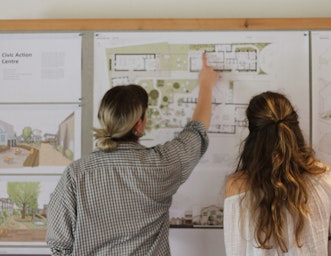
On-site Open Day: MArch Sustainable Architecture course
27th June 2025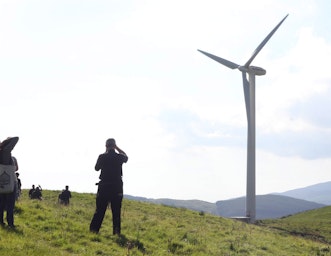
Transformational International Energy Management
30th June 2025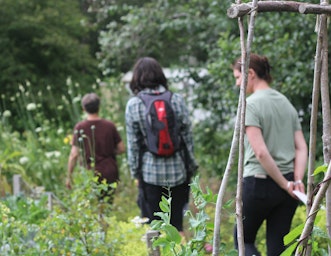
The Science of Sustainable Food Production (Sold out)
30th June 2025Zero Carbon Britain
Rising to the Climate Emergency
'Zero Carbon Britain: Rising to the Climate Emergency' models a technically robust endpoint where we have achieved net zero greenhouse gas emissions.
